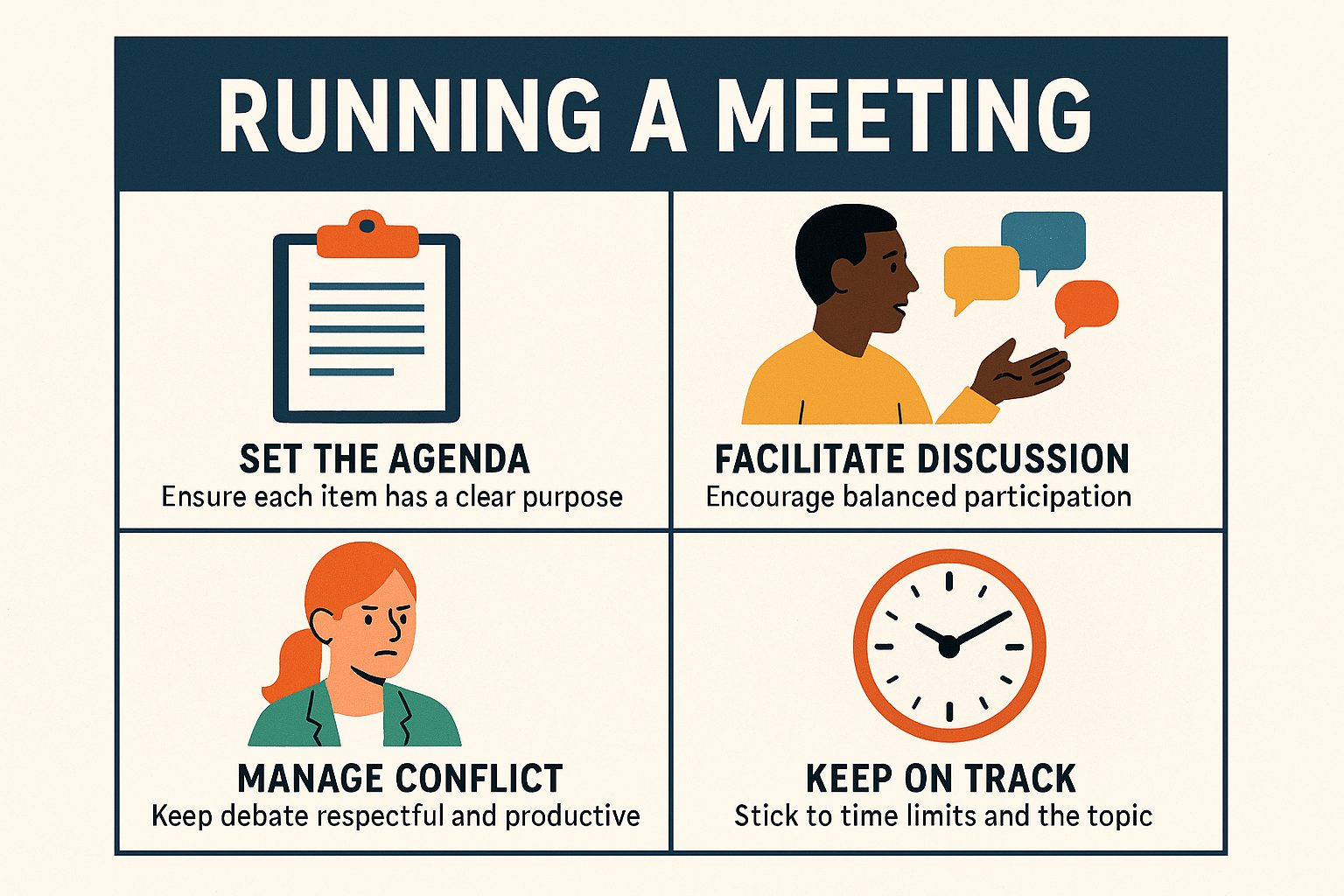Volunteering is deeply woven into Canadian life. About half of all Canadians contribute time each year, and while roles vary widely. From coaching youth sports to delivering meals to offering counselling services, there are countless ways to volunteer, but there’s one volunteer job nearly every nonprofit needs: board member.
Canada has more than 170,000 nonprofit organizations, and all are required by law to have a board of directors. These provide critical oversight and direction, they shape strategy, monitor finances, hire and evaluate the executive director, and ensure the organization stays focused on its mission. The work is serious, sometimes complex, and usually underappreciated. But if you’re interested in making a meaningful contribution, and having a major impact, there’s nothing quite like it!
Find the Right Fit
If you are looking to join a board, this is essential to find an organization that you care deeply about and are willing to put in the effort to support. Look for an organization whose mission matters to you. Maybe it’s something you’ve experienced personally: a youth mentorship program that is similar to one you benefited from, a housing initiative that aligns with your values, or an arts group that celebrates your culture. Finding that connection is essential. Board work takes time and effort, and you’re much more likely to stay engaged and add value if you care about the cause.
Start by checking platforms like Volunteer Manitoba, which lists board opportunities across the province, or CharityVillage for roles across Canada. Many nonprofits also post board openings on their own websites or social media pages. If you already support an organization you admire, ask if they’re looking for new board members. Even if they’re not currently recruiting, your interest might open the door to future opportunities.
You don’t need to be an expert in governance, but do take stock of what you bring. Boards often look for diverse skills among their members, and some particular areas of expertise that can help boards are in areas like finance, HR, fundraising, communications, legal, or nonprofit leadership. But just as important are traits such as curiosity, commitment, and the ability to work as part of a team. Diversity of background and perspective also matters. Lived experience and community connections can be just as valuable as technical expertise and boards benefit from having demographic, age, ethnic, and gender diversity to spur better discussions.
Understand the Commitment
Serving on a board is not a token role. It includes reviewing and approving budgets, understanding financial and legal obligations, setting or approving strategic direction, and ensuring good oversight of programs and leadership.
A typical board role for a non-profit involves:
- Attending board meetings (usually every month or two)
- Preparing in advance by reading meeting materials
- Participating in one or more committees
- Attending planning sessions or an annual retreat
- Participating in the annual general meeting
- Helping with events or fundraising
Altogether, a rule of thumb is that a board member should expect to put in around 6 to 8 hours a month on average to their role, or around 80 to 100 hours per year, though board leadership roles will be a larger commitment.
Before joining, ask clear questions. What’s expected of board members? How often do they meet? Are fundraising or event commitments part of the role? Do they offer onboarding or training? Good boards will be upfront about expectations and help you succeed.
What You Get in Return
Board service is a two-way street. Yes, you’re offering time and skills, but you also gain a lot in return.
You’ll build a deeper understanding of how organizations work: how budgets are built, how strategic decisions are made, how leadership is held accountable. You’ll strengthen your ability to ask good questions, make decisions in a group, and see the bigger picture.
It’s also a chance to expand your network and grow as a leader. For early-career professionals, board work offers experience and networking opportunities that are hard to get elsewhere. For more experienced members, it’s a chance to give back while staying sharp and engaged. Many board members, myself included, say they’ve learned as much through their nonprofit service as they have through formal education.
Just as importantly though, you get to be part of something that matters. You help move an organization closer to its mission and that’s work worth doing!
Final Thoughts
Serving on a board isn’t about prestige or padding a resume. It’s about real work, real people, and real change. Nonprofits depend on engaged, thoughtful, and committed board members to help them thrive. And many are quietly (or vocally) looking for someone just like you.
If you’re thoughtful about what you want to contribute, realistic about your availability, and willing to learn, there may be a seat for you at the table. If you’re ready to make a difference, and grow while doing it, consider joining a board. And once you do, reach out to The Governance Guru to help make your board better!


